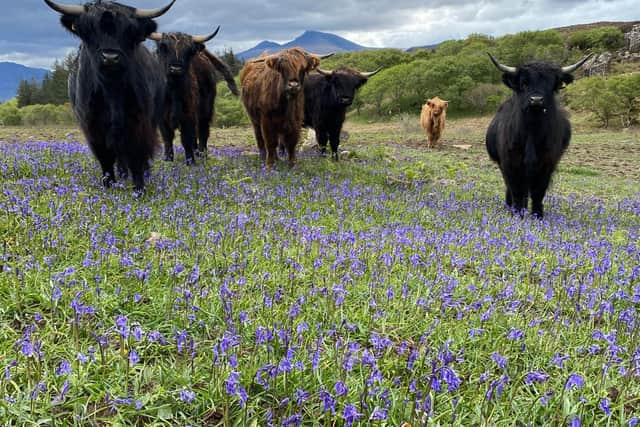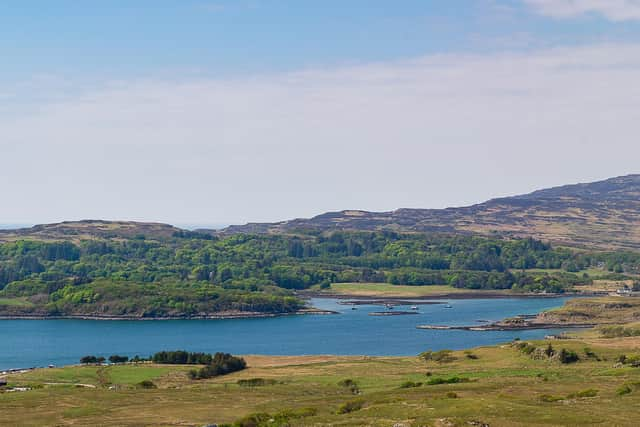Farmer sought to grow future of tiny Scottish island held in community hands
Ulva, off Mull, which is home to just eight people, once thrummed with agricultural activity, with hopes the land can now be better used for the benefit of its residents.
A livestock manager is now being sought to rear a 88-strong herd of Highland cattle and a growing flock of sheep as the community moves into the next phase of the island’s sustainable development.
Advertisement
Hide AdAdvertisement
Hide AdJohn Addy, a director of North West Mull Community Woodland Company, which led the buyout in 2018, said: “Getting farming moving again on Ulva is vital for the sustainable future of the island’s community and environment, but we are the first to admit that we ourselves are not farmers.”


He said the farm was now “up and running as far as possible” to allow the tenant farmer to come onto the island and start work, without having to build the business from scratch.
Returning parts of the island to agriculture is regarded as key to its success and viability.
In the 1800s, more than 600 people lived on Ulva, with the population scattered in 14 or so settlements close to the coast, where land was more fertile.


An ongoing mass clear-out of bracken on the island has revealed traces of the lazy beds that were cultivated on virtually every scrap of decent ground.
"Then, of course, the clearances happened," Mr Addy said.
The community bought the island under the Scottish Government's right to buy legislation from Jamie Howard, a former soldier whose family owned Ulva for three generations.
Around £4.4 million of public money was freed up from the Scottish Land Fund, with the community raising the rest to meet the £4.65m asking price.
Since then, work has been ongoing to increase agricultural activity on Ulva. Fencing has been put up to create a a new hill park, with stone dykes restored and bracken control underway.
Advertisement
Hide AdAdvertisement
Hide AdTwo years ago, a small sheep flock was joined by a new herd of Highland heifers from Mull, with a new bull due to arrive in coming months.
Work is also ongoing to protect and encourage priority species such as farmland waders, Corncrakes, Hen Harriers and Marsh Fritillary butterfly. Ulva is also one of the last remaining homes of the Slender Scotch Burnet Moth.
"This initial work is the first step towards turning Ulva Farm into an actively farmed and vibrant livestock unit again,” Mr Addy said.
The part-time livestock manager will be hired at first for two-and-a-half years, with the position likely to lead to a full tenancy for the right candidate
Iain MacKay, of the neighbouring Torloisk Farm on Mull, has “kindly offered” to give the new livestock manager additional work if needed to help supplement their income, as well as mentoring support.
The population of Ulva is expected to rise to ten and 14 by the summer following a number of property renovations, with 20 to 30 people expected to live there in around five years, given plans to build new houses.
Applications for the post should be made through the Scottish Land Matching Service, who will draw up a shortlist of suitable candidates.
A message from the Editor:Thank you for reading this article. We're more reliant on your support than ever as the shift in consumer habits brought about by Coronavirus impacts our advertisers.
If you haven't already, please consider supporting our trusted, fact-checked journalism by taking out a digital subscription.
Comments
Want to join the conversation? Please or to comment on this article.
